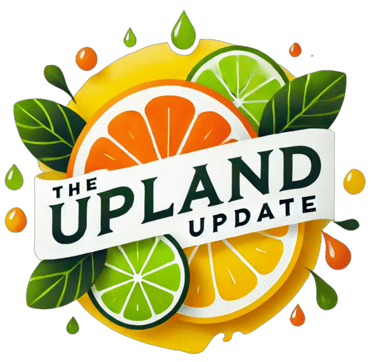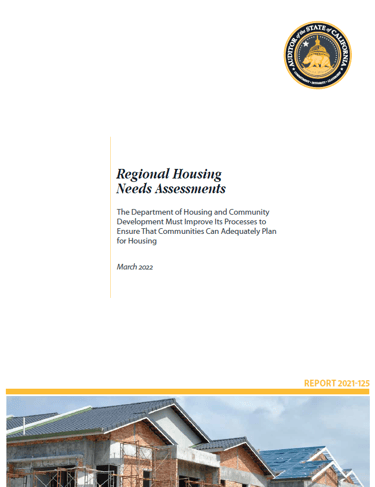Cities have Ally in State Housing Assessment Implementation
State Auditor's Office to release third report exposing the California Housing and Community Development Department
Understanding Our Housing Element and What It Means for Upland
In recent years, the State of California has placed increasingly aggressive housing mandates on cities through the Regional Housing Needs Allocation (RHNA) process. This process, overseen by the California Department of Housing and Community Development (HCD), determines how many new housing units each city must plan for—regardless of available land, infrastructure limitations, or local input. While the intent behind these laws may be to address the state’s housing shortage, the reality is that cities like Upland are being forced to rezone properties in ways that often conflict with our General Plan, neighborhood character, and community priorities.
Many residents have rightfully questioned how these housing numbers are determined, and whether they’re truly fair or achievable. The good news is, we’re not alone in those concerns. The California State Auditor, the state’s independent watchdog agency, has conducted several investigations into HCD’s operations and has confirmed many of the same problems local officials have raised.
In March 2022, the Auditor released a report (Report 2021-125) that exposed serious flaws in how HCD calculated housing needs. The agency failed to use a proper review process, made significant data entry errors, and didn’t document how it considered key factors like infrastructure, water availability, and wildfire risk—all of which are especially important for built-out cities like ours. One regional error alone resulted in a miscalculation of nearly 2,500 units. The report concluded that HCD’s methods may have inflated statewide housing targets by hundreds of thousands of units. In other words, the very numbers being used to force zoning changes in Upland may not be grounded in reliable data.
Despite these findings, state law hasn’t changed—and cities remain legally required to comply. If we don’t, we risk severe penalties, including the “Builder’s Remedy,” which allows developers to bypass local zoning rules altogether. For Upland, this means we must rezone land across the city to accommodate nearly 5,000 new housing units by 2029. Even though the audit validated concerns about the fairness and accuracy of the process, we are still bound to meet these quotas or face consequences beyond our control.
In December 2023, another audit (Report 2023-112) focused on HCD’s handling of a different program—the Mobilehome Residency Law Protection Program—and again found issues with poor oversight, inefficient use of public funds, and a lack of transparency. While this audit didn’t involve RHNA directly, it reinforces a troubling pattern: HCD continues to operate with vast authority over our communities but without the level of accountability that such power demands.
There is, however, another audit underway (Report 2024-109), which is taking a deeper look at HCD’s current review process for local Housing Elements—like ours. This report is expected to be released in late 2025 and will hopefully shed light on whether the agency has made improvements in fairness, consistency, and responsiveness during this sixth housing element cycle.
Until then, cities like Upland remain stuck in a situation where we must implement zoning changes—many of which are controversial and deeply impactful to our neighborhoods—not because we believe they’re right, but because we are under legal pressure to comply. As an Upland Councilmember, I want to be transparent about this reality. We are not voluntarily supporting policies that upend our planning vision; we are navigating a legal framework that prioritizes top-down mandates over local decision-making.
I believe in housing solutions that are achievable, community-driven, and respectful of the cities expected to implement them. We need a system that is transparent, accurate, and realistic.
Upland deserves a voice in shaping its future, and I will continue to keep you informed as the process moves forward. I welcome your thoughts, questions, and feedback—please don’t hesitate to reach out.
Councilman James Breitling




